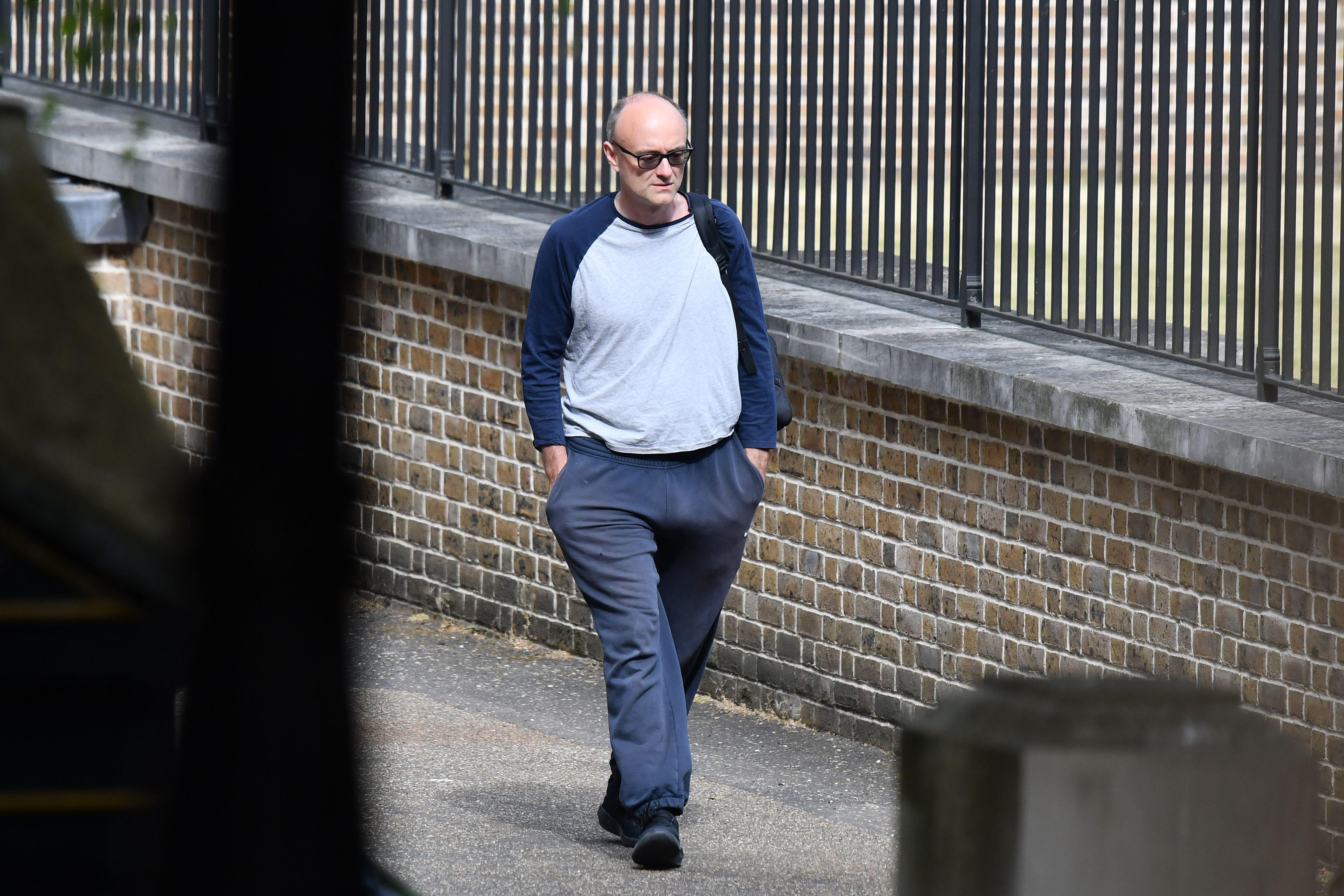Every country is experiencing the coronavirus pandemic differently. That’s never been more evident than in the public uproar over a road trip taken by Dominic Cummings, a senior adviser to U.K. Prime Minister Boris Johnson—a very English scandal that would probably not be a scandal at all in the U.S.
Cummings isn’t just any adviser. He was the director of the Vote Leave campaign ahead of the 2016 Brexit referendum and coined the influential slogan “take back control.” Last year, as Johnson’s senior adviser, he led the prime minister’s ultimately successful effort to get Brexit done. He’s known for his disheveled appearance, is often portrayed as a dark Svengali figure—think Karl Rove or Steve Bannon—and was played by Benedict Cumberbatch in a so-so HBO movie.
Cummings is currently in hot water over a drive he took from London to his parents’ home in Durham, 260 miles away, on March 27. This was four days after the government ordered citizens to remain at home and avoid all nonessential travel in order to stop the spread of the coronavirus.
Cummings’ explanation for violating this order is that his wife had developed coronavirus symptoms that day, and he felt it was likely he too would soon contract the virus. (Several of Cummings’ colleagues, including the prime minister, had already tested positive.) In order to secure care for his 4-year-old son, he traveled to his parents’ estate, where he stayed in a separate cottage and where his sister and nieces could provide child care. The following day, he developed symptoms.
Families all over the world are having to face the dilemma of who will look after their children if both parents become ill, and the British government’s own stay-at-home guidelines state that parents should follow the rules “to the best of your ability, however, we are aware that not all these measures will be possible.”
Harder to explain is a drive Cummings took with his wife and child to Barnard Castle, 30 miles from his parents’ home, on April 12, after he had recovered. He says they spent 15 minutes outside the car, where they were spotted by passersby, who made a complaint to the police. Cummings said he made the drive in order to test his eyesight, which had been affected by the virus, before making the longer drive back to London, and that the family maintained social distance from others while out of the car. (Maybe driving 30 miles is not the best way to test if you can see?)
They returned to London the next day, and Cummings was back at the office the day after that. Cummings’ wife, Mary Wakefield, an editor at the Spectator magazine, would later write a column describing his illness in vivid detail, without mentioning the road trip. There’s also the odd matter of whether Cummings edited an old blog post to make himself look more prescient about the coronavirus.
The story of the trip broke last week and the response has been explosive. There are widespread calls to fire Cummings, including from a number of Conservative MPs and traditionally pro-Johnson media outlets. Cummings maintains he did nothing wrong, and the prime minister is so far sticking by him. On Tuesday, Douglas Ross, the undersecretary of state for Scotland, resigned from Johnson’s government over the prime minister’s refusal to sack Cummings. The Durham police have opened an investigation into Cummings’ alleged violation of lockdown rules. (Thousands of people have faced small fines for violating rules in the U.K. since the lockdown began.)
The scandal is a little hard to understand for those of us in a country where governors are proudly taking photos of themselves in crowded restaurants with the support of the president. Yes, Ivanka Trump and Jared Kushner took some flak for ignoring federal guidelines to travel to New Jersey for Passover, but it was a much smaller story, and there were no calls for anyone’s resignation despite them having a much worse excuse. The Cummings story is a reminder that America’s “lockdown” has been far laxer and more haphazard than many other countries.
A few factors explain why Cummings’ behavior prompted such a backlash in the U.K.
One is that Cummings is a highly controversial figure who made a lot of enemies over the course of the Brexit saga, including within his own party. Second, the Johnson government was already under fire for being late to recognize the severity of the threat and order a nationwide lockdown, a delay that might have cost thousands of lives in the country that now has the highest death toll in Europe. The Cummings affair symbolizes the government’s lackadaisical and sometimes contradictory response.
Third, always on the lookout for official hypocrisy, the British media found a perfect example in Cummings of a member of the political elite not obeying the rules it imposed on citizens. As Ross put it in his resignation statement, “I have constituents who didn’t get to say goodbye to loved ones; families who could not mourn together; people who did not visit sick relatives because they followed the guidance of the government. I cannot in good faith tell them they were all wrong and one senior adviser to the government was right.”
As Brits flocked to beaches over the weekend, some told reporters that they felt justified given Cummings’ own flouting of the rules.
What Cummings did is not quite analogous to going to a crowded beach, but the bigger point is that the Johnson government appears to be losing the trust of citizens as it struggles to keep the virus under control. Someone as skilled at reading public opinion as Cummings ought to understand that.
